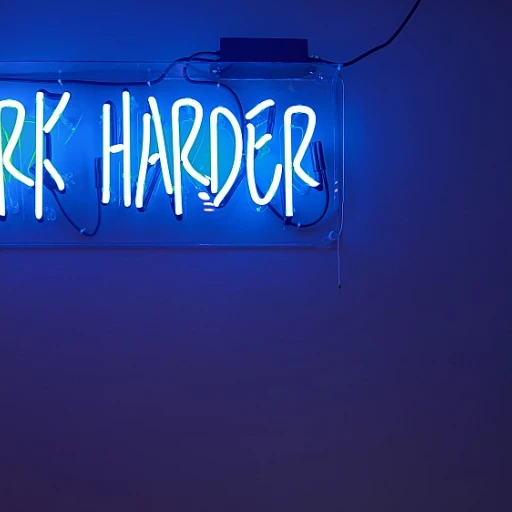Understanding the Career Transition Landscape
Getting a Grip on Career Change
Switching careers is no small feat. Whether you’re moving from teaching to tech or marketing to medicine, the process can feel like a roller coaster. But don't worry, you're not alone. Many people are in the same boat, looking to make a change that aligns with their passions and goals. Understanding what you're up against is the first step to making a successful transition.
Before you start tweaking your resume, take a moment to reflect on why you want to change your career. Is it for better work-life balance, a higher salary, or a more fulfilling role? Knowing your motivation will help you stay focused and motivated throughout the process.
Industry Insights
Every industry has its quirks. Some might value experience over education, while others prioritize certifications. Research is your best friend here. Spend time understanding the industry you're interested in. What are the key skills and qualifications that hiring managers look for? What does the job description typically include? This knowledge will be invaluable when you start to write your resume and cover letter.
Spotting Transferable Skills
One of the biggest hurdles for career changers is identifying the skills that can be transferred from one role to another. Start by listing out your skills and experiences. Are you a whiz at project management? Do you have strong communication skills? These are often transferable and can be a big selling point. Highlight these skills in your resume summary and skills section to show potential employers that you're more than capable of handling the new role.
Remember, changing careers isn't just about what you've done in the past; it's about what you can bring to the table in the future. By focusing on your transferable skills and understanding the industry, you'll be better equipped to make a smooth transition.
Identifying Transferable Skills
Recognizing the Value of Your Existing Skills
Transitioning into a new career might leave you feeling like your current skills are square pegs in round holes. But pause and consider those skills you often overlook. Often what you bring to the table is more relevant than it first appears. For instance, managing a project at a retail job hones organization and leadership—skills applicable in varied roles. Many folks don't realize that soft skills are high-valued treasures in any industry. Think communication, empathy, critical thinking, and time management. These might not be flashy on paper, but they shine brightly in real-world scenarios. To prove their worth, start by creating a resume format that showcases your transferable skills. A skills summary section can more effectively connect these experiences with the requirements of a new job.Introducing a Strong Career Summary
Think of the career summary on your resume as your personal commercial. This is your chance to catch a hiring manager's attention and provide a compelling reason for your career change. It should resonate with what the company is looking for, making them want to read more. Consider this example: "Dynamic professional with expertise in customer relations, seeking a role in project management to leverage exceptional skills in communication and organization to drive team success." This kind of summary highlights where you've been and hints at where you're headed, bridging your old and new skills.Emphasizing Work History that's Relevant
Your job description should weave a story that links your past experiences to your new career goals. Yes, those café shifts or accounting gigs count—it's about how you present them. Go through your work experience and list roles where you excelled in relevant skills. Perhaps that waitressing job taught you multitasking and customer service, crucial for any management role you're aiming for. With each job role, also write a few bullets focusing on achievements that demonstrate your proficiency.Listing Educational Credentials and Certifications
Your education and certifications section is more than just an academic timeline. It's proof of your commitment to your newly chosen field. Include relevant courses, degrees, or any additional training that ties in with the new industry. Whether it’s a professional certification or a single course online, it shows you are serious about your career change and have taken the steps to back it up. A short resume objective accompanying this can connect the dots for hiring managers—clarifying your intent as a career changer. When written effectively, these individual resume components work together, guiding the employer’s understanding of your story. Stay tuned for part 3, where we'll offer more insights like strategic interview approaches to further bolster your chances of success in transitioning careers. For more tailored interview strategies, visit our comprehensive guide on elevating your job search.Crafting a Compelling Career Summary
Become Everyone's Favorite Newcomer: Crafting a Standout Summary
Let's get straight into it. Your resume isn't just a list of your past jobs. It's your opportunity to grab the hiring manager's attention and make a solid impression. A powerful career summary at the top of your resume can paint a clear picture of who you are and what you bring to the table. So how do we do this effectively?Lay Out Your Story
It's best not to jump right into industry jargon or complex terms. Speak plainly about your goals, your professional journey, and the skills you've picked up along the way. Your summary should match the tone and requirements of the job you're applying for, but don't be shy to include a bit of personality and flair. For example, if you're switching from teaching to sales, highlight your communication skills and knack for persuasion.Make It Relate
A successful career transition often hinges on identifying those transferable skills that serve you in your new role. Mix these skills with relevant experience or past results. Use specifics to show potential employers how your past experience aligns with the work they're offering. By doing this, you’re not only writing a resume, you're shaping a coherent, compelling narrative.The Ripple Effect of Keywords
A strategic move involves peppering your summary with industry-related keywords. Look closely at the job description and integrate similar terms into your resume to speak the employer’s language. This strategy can help your resume filter through digital scans and catch the eye of recruiters.Fresh and Focused
While it’s tempting to make your summary a catalogue of all your achievements, less can often be more. Aim for clarity and conciseness. Highlight achievements most relevant to your new career path, letting your summary become a beacon for what you’ve done and what you can do. Don't label it a "summary of weaknesses" by trying to please everyone. Crafting a well-rounded summary can set the stage beautifully for the rest of your resume, opening doors to your next great opportunity. Looking ahead, consider enhancing your job search with effective interview preparation. Check this guide for how interview preparation can elevate your job search strategies for more insights.Highlighting Relevant Experience
Aim Your Spotlight on the Right Experiences
If you're making a career shift, you might think your past work isn't relevant. But hang on! It's all about how you present it. Every role you've had has golden nuggets of skills and experience that hiring managers want to see—it's just up to you to shine a light on them.
Think about your... well, everything. Your soft skills, professional achievements, daily responsibilities, and even volunteer work. They're not isolated incidents but part of a narrative you can design to fit your new direction.
Review the job description for each job you intend to apply to, and construct a personalized experience list:
- Showcase relevant skills: Even if your past job was entirely different, it likely equipped you with transferable skills. Maybe you led a team, managed projects, or resolved customer issues—these skills are adaptable across industries.
- Emphasize accomplishments: Quantify your achievements—such as "increased sales by 20%" or "led a project to completion ahead of schedule." Numbers resonate.
- Draw parallels: Each job gives you a foundation to build upon, so connect the dots for the recruiter. Describe a situation from your past role with lessons that will serve you in your new career.
Your past experience is the bedrock to a solid future, and it all starts with how you write it in your resume. Be honest, relatable, and connect your past roles to your future aspirations.
When you're done with your resume career change narrative, don't overlook the importance of a comprehensive interview preparation to complement your efforts.
Education and Certifications: What to Include
Include Education and Certifications That Boost Your Suitability
When you're aiming to show off your professional experience during a career change, don't underestimate the power of including relevant education and certifications in your resume. These elements highlight not only your knowledge but also your commitment to learning new skills and adapting to your desired field. To make the most of this section in your resume:- Focus on Relevance: Zero in on degrees, courses, and certifications that are closely tied to the job you're eyeing. This helps hiring managers quickly grasp how your academic background can benefit their organization.
- Highlight Key Achievements: Did you earn distinctions or complete a project that bolstered your understanding and skills in your new industry? Featuring these can provide a complete picture of your capabilities.
- Keep It Current: The job market is fast-moving, so aim to write about recent qualifications to show you're up-to-date. Outdated education can be less impactful if it's not directly related to the role you're pursuing.
- Certifications Count: Whether it's a short course or a comprehensive program, relevant certifications can often be as valuable as formal education. They can demonstrate your hands-on skills and readiness for a career change and help bridge gaps in your resume.



